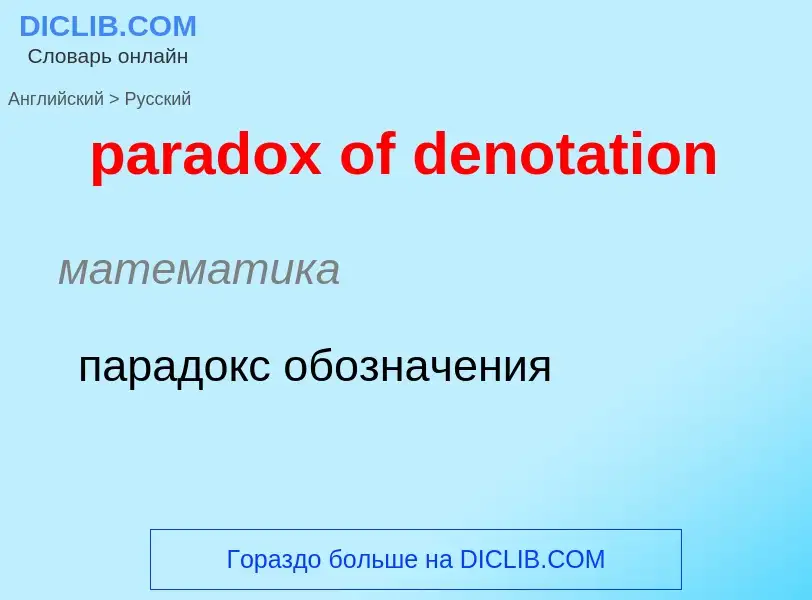Traduction et analyse de mots par intelligence artificielle ChatGPT
Sur cette page, vous pouvez obtenir une analyse détaillée d'un mot ou d'une phrase, réalisée à l'aide de la meilleure technologie d'intelligence artificielle à ce jour:
- comment le mot est utilisé
- fréquence d'utilisation
- il est utilisé plus souvent dans le discours oral ou écrit
- options de traduction de mots
- exemples d'utilisation (plusieurs phrases avec traduction)
- étymologie
paradox of denotation - traduction vers russe
математика
парадокс обозначения
Définition
.
Wikipédia
The paradox of hedonism, also called the pleasure paradox, refers to the practical difficulties encountered in the pursuit of pleasure. For the hedonist, constant pleasure-seeking may not yield the most actual pleasure or happiness in the long term—or short term, when consciously pursuing pleasure interferes with experiencing it.
The utilitarian philosopher Henry Sidgwick was first to note in The Methods of Ethics that the paradox of hedonism is that pleasure cannot be acquired directly. Variations on this theme appear in the realms of philosophy, psychology, and economics.


